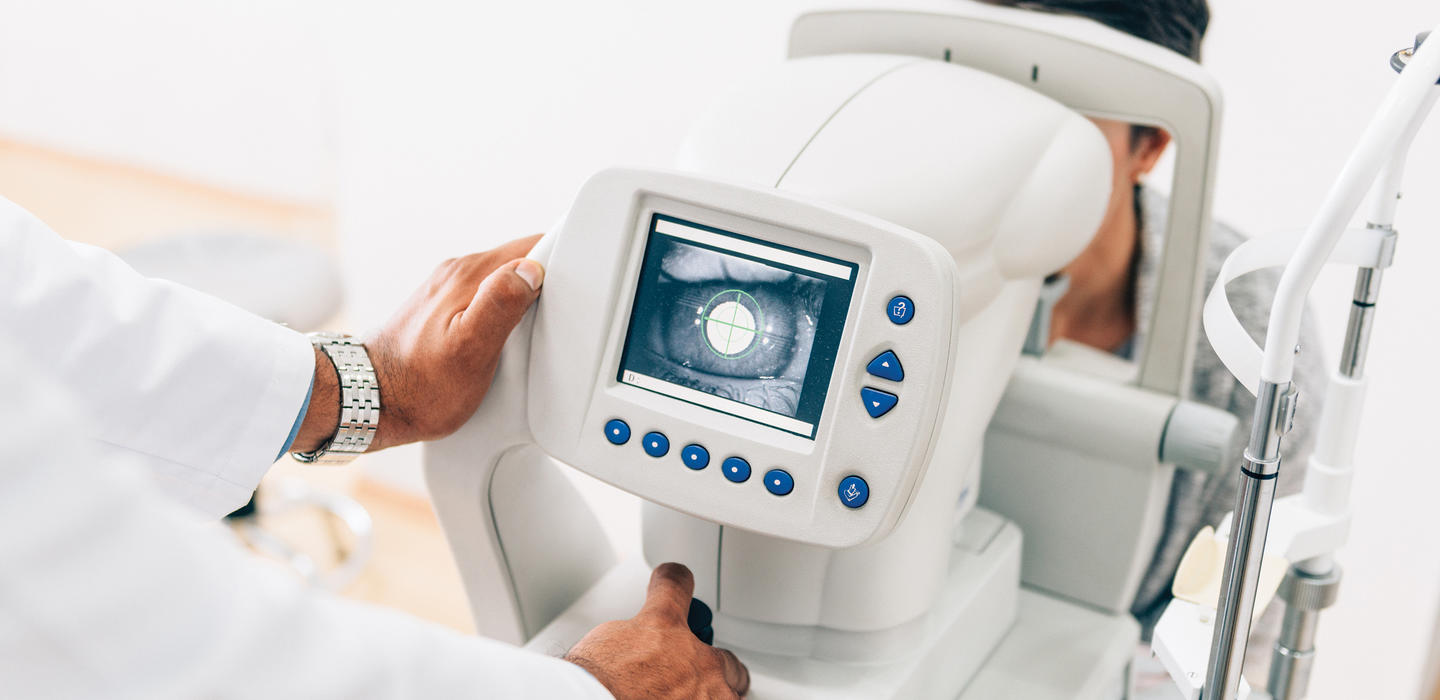Past District Governor Norma Callahan remembers telling people, “I don’t do eyeballs,” meaning she didn’t do vision screenings. She did diabetes screenings.
“Now what am I doing? Eyeballs,” says the executive director of the Florida Lions Retinopathy Foundation.
She laughs, but she knows how serious diabetic retinopathy—a complication of diabetes—is, and how the number of cases are rising throughout the world as diabetes numbers escalate.
Callahan, with the assistance of ophthalmologist and retinal specialist Dr. Shalesh Kaushal—both Volusia County Lions—has led the march for three years now, guiding Florida Lions in conducting more than 6,500 retinopathy screenings across their state. Kaushal, the medical director for the foundation, says Florida has some of the highest retinopathy rates in the country.
With the support of a LCIF SightFirst grant in 2015, Callahan has been able to stage cameras across the state, making screenings available throughout Florida and into the Bahamas. And she has personally trained 24 Lions to serve as certified screeners.
Diabetic retinopathy is caused by damage to the blood vessels of the retina, the light-sensitive tissue at the back of the eye. There might not be any symptoms at first, or the retinopathy may cause only mild vision problems. But in some cases the blood vessels swell and leak, causing an eye bleed, while in others there is abnormal growth of new vessels.
It can be prevented with good control of diabetes, but without treatment, retinopathy can cause blindness. And once vision is lost from diabetic retinopathy, it cannot be restored.
In the past, screening for retinopathy required dilating the eyes, but dilating is no longer required with the hightech cameras that were purchased with grant funds. Callahan says both screeners and participants are thrilled with that news.
“We’ve had people—diabetics included— say they haven’t done a screening before because they don’t like having their eyes dilated,” says Callahan. “They don’t like that they can’t see afterwards. But new technology solves that problem. The other big thing we find is that 50 percent of the people we’re screening have never had an eye exam.”
Retinopathy screeners set up their camera under a dark tent or in a dark room so the eyes dilate naturally. “We have screened anywhere and everywhere; at health fairs, car shows, veterans’ events, you name it,” says Callahan.
Along with no dilation, there’s no uncomfortable puff of air like in the glaucoma test, and with two volunteers the screening takes less than five minutes, she says.
With the latest internet-based software integrated into the cameras, the process is simple. The patient sits down and the camera does the work, focusing on the right eye to take a picture of the retina, then moving to the left to do the same. The images are instantly transmitted to Kaushal who can read 30 or 35 in 30 minutes, he says. Often he reads them in real time, but always within 12-36 hours, and the results are sent to Callahan who hand addresses a “report card” to the patient, giving them the results—to either follow up with an eye doctor in a specific time or to have yearly eye exams.
Callahan says of Kaushal, “He’s a blessing. A real blessing. I’ve never seen anybody work so hard.”
I’ve been a Lion for almost 25 years, and of all the things I’ve done, this is the most exciting.
Roughly 90 Lions clubs in four Florida districts are involved in retinopathy screenings now, says Callahan. Although most screens are for both diabetes and diabetic retinopathy—and she prefers they also include hypertension— many Lions screen just for diabetes. Between July 1, 2017 and January 1, 2018 Florida Lions screened more than 9,000 people for diabetes, she says. While screeners can refer people to medical care, they cannot force them to follow up on the findings. “We’re not the blood sugar police and I’m not the retina police, although sometimes I feel like the dictator,” says Callahan. “But that’s true of all screenings.”
“This [retinopathy screening] project has been great. I’ve been a Lion for almost 25 years, and of all the things I’ve done, this is the most exciting. Some people say they’re happy to be Lions, but I’m really happy to be a Lion.”
Kaushal says the time he spends reading images for Lions is his way of giving back.
“I believe there needs to be more awareness of diabetic retinopathy,” he says. “I explain it to patients all of the time. Anything that is happening in the body is reflected in the retina. Diabetes, high blood pressure … these problems can be addressed if they are picked up early.”



